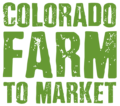Definitions:
Coffee: A brewed drink prepared from roasted seeds, called coffee beans, of the coffee plant.
Tea: An agricultural product of the leaves, leaf buds, and internodes of various cultivars and sub-varieties of the Camellia sinensis plant, processed and cured using various methods.
Harvest/Post Harvest: Good Agricultural Practices (GAPs) should be encouraged for the production and harvest of these commodities.
Food Safety: After oil, coffee and tea are the most widely traded and consumed commodities in the world. In coffee and teas, the most common food safety concerns arise at the processing facility or during storage. Good Manufacturing Practices should be followed for the roasting, curing, or drying processes used for the production of coffee and tea.
Mycotoxigenic molds produce toxins mainly associated with cereals, but have also been associated with coffee beans. Food items can be infected with molds, sometimes in the field, but more commonly during improper storage. Once mycotoxins are present, they can persist through processing into the final food product and pose serious health consequences to those who consume the food or beverage with high amounts of toxin.
Distribution Method | Collapse All)
You are selling your product at a farmers’ market, CSA, roadside stand, or other direct to consumer outlet
If you are selling coffee or tea that you purchased pre-packaged, you are exempt from licensing but must purchase from a licensed wholesaler.
If you are preparing and serving only hot coffee, hot tea, instant hot beverages, and non-potentially hazardous doughnuts or pastries, you are exempt from licensing.
A retail food establishment license is required for espresso coffee kiosks that sell iced beverages or potentially hazardous foods. In order to obtain a license, these kiosks must comply with the Colorado Retail Food Establishment Rules and Regulations. Although these kiosks may not have a permanent water supply or sewage disposal system, they do not meet the definition of a mobile unit because of their fixed location. It is advisable to contact the local building department or water/sanitation district to see if these structures are prohibited under any of their jurisdictional requirements.
Before issuing a retail food establishment license, espresso coffee kiosks must be evaluated on a case-by-case basis to determine if the establishment meets the sanitation requirements of the rules and regulations. Please refer to Interpretive Memo #01-04 to calculate the total water usage requirement for each kiosk. It is essential that espresso coffee kiosks comply with these total water usage requirements. It is also critical that their water be obtained from an approved public water supply system, and that the water is transported and stored in approved water containers. Water from a private water supply or an individual residence shall not be permitted. Several other issues of concern are as follows:
- All equipment shall be of commercial design that is certified or classified for sanitation by an American National Standards Institute (ANSI) accredited certification program or a design approved by this Division.
- The espresso coffee maker shall comply with the 1997 Uniform Plumbing Code, including provisions for backflow protection. Water protection would be a continuous pressure type, dual check valve; e.g., Watts N9 or the equivalent.
- Potable water containers shall be filled from an approved location. When water containers are filled with a hose, only an approved potable water hose shall be used. This hose shall not be used for any purpose other than filling potable water containers.
- Water supply tanks shall be sized according to the calculations in Retail Food Establishment Interpretation #01-04, or the kiosk operator shall have an approved plan for refilling the tanks at sufficient intervals.
- Wastewater retention tanks shall be at least 15 percent larger than the water supply tanks.
- All wastewater shall be discharged to the sanitary sewer or a sewage disposal system constructed, maintained and operated according to law.
- In order to meet the requirement for a toilet facility, a written agreement with an adjacent business allowing the use of their restroom is acceptable, provided that the restroom is conveniently located and available at all times the kiosk is in operation.
Labeling: General labeling requirements. If making health claims on your label will need additional FDA approval, see FDA’s Food Labeling Guide.
Sales Tax Liability: General sales tax information.
Weights and Measures: If you are selling your product by weight, you must follow the Colorado weights and measures requirements.
You are selling your product to a store, restaurant, food cart, K-12 school, university, hospital, or other retail food establishment
You will also need a Farm Product Dealers License for selling coffee or tea produced from raw coffee beans or tea leaves purchased from a wholesaler.
In addition, you must register your food processing facility with the Food and Drug Administration.
Note that if you are selling at farmer’s market and as a wholesaler, you will need a to obtain a retail food establishment license and register as a wholesale food manufacturer.
Labeling: General labeling requirements. If making health claims on your label will need additional FDA approval, see FDA’s Food Labeling Guide.
Sales Tax Liability: General sales tax information.
Weights and Measures: If you are selling your product by weight, you must follow the Colorado weights and measures requirements.
Related Links:
